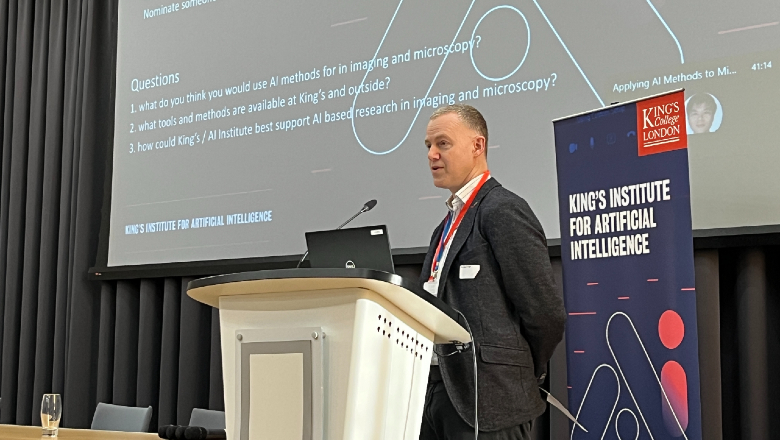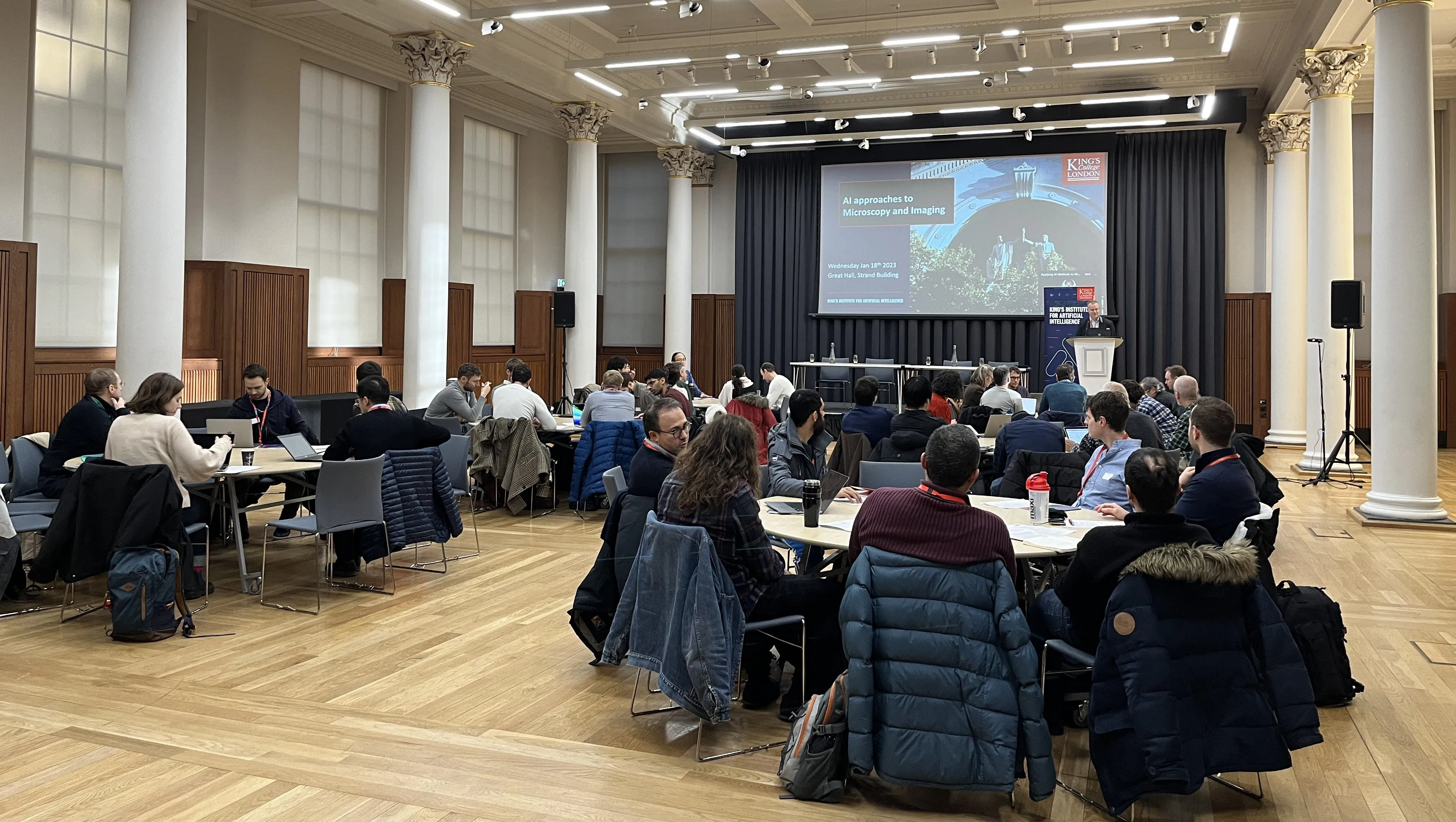It was an engaging audience and it was good to see a good mix of early/mid/senior career researchers all contributing to the discussion.
Anonymous feedback
24 February 2023
King's researchers gather for workshop on applying AI to microscopy and imaging
The King's Institute for Artificial Intelligence hosted a workshop for researchers to explore how artificial intelligence can be applied in microscopy and imaging.

Researchers from across King’s recently convened at a workshop on the application of artificial intelligence (AI) in microscopy and imaging.
Organised by Robert Knight, Mads Bergholt and Andrew King with the King’s Institute for Artificial Intelligence, the event showcased research ranging from image acquisition and analysis, to optimisation of AI methods and exploration of new algorithms. The event was interactive and cross-disciplinary with representation from across King's, including from the Faculty of Natural, Mathematical & Engineering Sciences, Faculty of Life Sciences & Medicine, Faculty of Dentistry, Oral & Craniofacial Sciences, and the Institute of Psychiatry, Psychology and Neuroscience engaging in structured discussion and exploring challenges and areas for further development.
Talks from Tom Vercauteren and Anita Grigoriadis described how they use AI for analysing patient imaging data and Tareen Dawood described her work on the idea of uncertainty calibration in AI for decision-support. Stefania Marcotti, Andrew Chan and Gilbert Fruhwirth presented their different types of imaging data and posed questions that they are aiming to utilise AI to address. Presentations from Mads Bergholt and Rob O’Shea explored how to train and optimise AI models for analysing spectral data and CT data while Susan Cox described deep learning application to image reconstruction of super-resolution data.
The invited guest speaker, Ivo Sbalzarini, Dean of Computer Science at TU Dresden, presented a variety of tools and solutions for understanding mechanochemical properties of cells. He described their work exploring the use virtual reality (VR) for data visualisation and different models to explain cell behaviour and how incorporating constraints into the models can improve their utility.
The day concluded with a brief summary of the talks and a discussion session.
Looking forward, the organisers are looking at building a community of King’s researchers applying AI methods to imaging and microscopy. All interested parties are urged to contact Robert Knight via the King's Institute for Artificial Intelligence.

King's Institute for Artificial Intelligence
The King’s Institute for Artificial Intelligence seeks to bring together and support artificial intelligence research across the university, to provide more opportunities for multidisciplinary research teams to rise to the challenges of AI, and to give a greater coherence to the overall agenda at King’s in a collaborative AI community. Its cross-university focus encourages critical mass and invites researchers to contribute to scientific and technical developments in artificial intelligence research, as well as to the legal, societal and ethical issues involved.
It was good to hear from such a diverse collection of disciplines.
Anonymous feedback
Good to hear about related work within the college. Nice that the format allowed for discussions rather than just listening to talks.
Anonymous feedback



